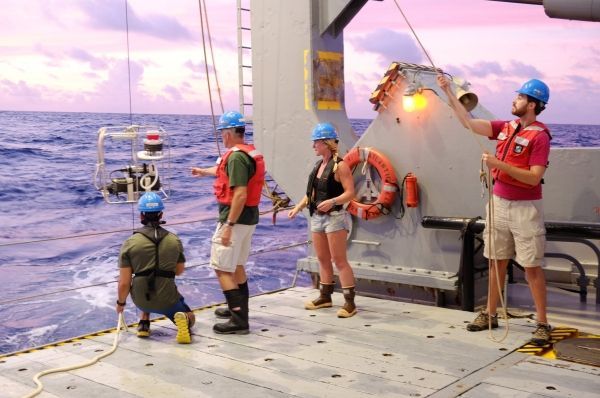A newly discovered parasitic cycle, in which ocean bacteria keep phytoplankton on an energy-sapping treadmill of nutrient detoxification, may offer a preview of what further ocean warming will bring.
The research, conducted by Oregon State University scientists in the Sargasso Sea near Bermuda, also may explain how the bacteria, SAR11, came to be so prolific.
Findings were published today in mBio.
In large bodies of water, plankton are the collection of organisms unable to swim against the current.
Phytoplankton refers to the autotrophic, or self-feeding, components of the community – the ones that can produce, often via photosynthesis, organic compounds like fats, proteins and carbohydrates from substances in their environment.
Read more at Oregon State University
Photo: Sargasso Sea phytoplankton research. CREDIT: Steve Giovannoni / Oregon State University


